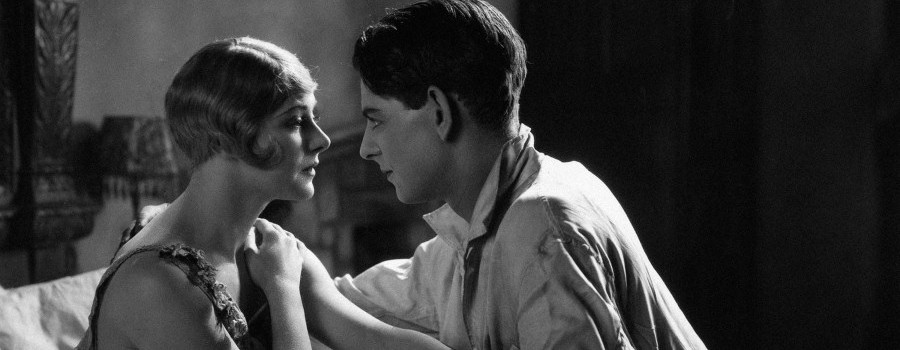A Year with Hitchcock: Easy Virtue, by Reed Lackey
1 Feb
There is a discrepancy with when Easy Virtue was made in Hitchcock’s filmography. Truffaut’s definitive study of Alfred Hitchcock places this film as directly preceding The Ring, while most other records has it two films later. Regardless of when it was made, this one is quite fascinating, even if it isn’t very good. It contains very few of Hitchcock’s reputational trademarks, and yet somehow still makes sense when considered among his other early films.
The story, in brief, is that Larita (played by Isabel Jeans) is married to an abusive drunk. She then receives the affections of a dashing young painter, which she refuses. However, despite her faithfulness, her husband believes otherwise and a confrontation results in the young painter’s death. A jury then finds Larita guilty of adultery and she is shamed in the divorce.
Following the shameful tragedy, she relocates and falls in love with aristocrat named John Whittaker (played by Robin Irvine), who marries her and brings her home to his family. However, his family had fostered hopes of him marrying another young lady and the tension between them and Larita escalates until any hope for a happy resolution dissolves.
One of Easy Virtue’s most fascinating elements to me is how it capitalizes on Hitchcock’s “wronged man” motif in the form of Larita’s troubles. It’s worth noting that, despite an utterly different resolution for most of Hitchcock’s “wronged men,” in Easy Virtue things categorically do not progress or end well for Larita. The film ultimately makes a rather melancholy statement about the inability to escape a tarnished past (which is the reference to the “easy virtue” of the title).
It also has more than a few things to say about the hypocrisy of judgment in “high society” and the extent to which certain families will go to avoid scandal — even if what they’re doing would be considered unjust. Our sympathies consistently lie as viewers with Larita, knowing what we know of her misfortune, which makes it even more surprising that the story does not give us a happy ending. It’s the first time in Hitch’s filmography where the story ends on a tragic note.
Easy Virtue is the least sensational of Hitchcock’s early silent films, but also possibly the most complex thematically. This is likely attributable to its source material, which was a Noel Coward play of the same name. Hitchcock has adapted plays before, but not yet from someone of such pedigree as Coward.
Despite the narrative being as strong as it is, the film is still primarily for those who desire to complete Hitch’s entire catalogue. This is mostly due to an utter lack of cinematic flourish from the director. He chooses to tell the story so directly, so beholden to the source material’s structure, that it feels as if it could have been made by anyone. And even though the narrative makes for some worthwhile talking points, that’s not the kind of compliment you want to pay to any director, let alone Alfred Hitchcock.
Summary:
Accessibility – Available on Blu-Ray from The Criterion Collection
Themes – Romantic Entanglements, Societal Inequality, Accused Innocent Woman
Category – For Completists Only




No comments yet